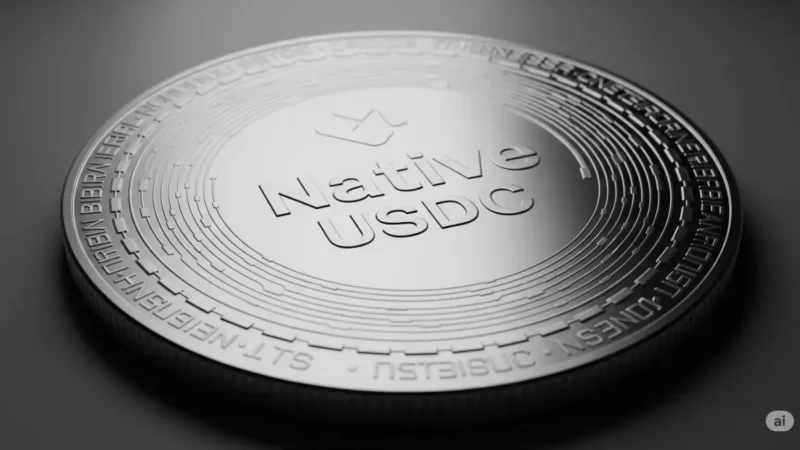5 reasons not to store cryptocurrencies on an exchange

Many people think their coins and tokens are safe on the crypto exchange of their choice. But this is a mistake – here are the five most important reasons why you should withdraw your cryptocurrencies from the exchange as quickly as possible.
1. You need permission from the exchange to withdraw your coins
You will find out about the problem of “blocked” coins on a crypto exchange at the latest when you have to prove your source of income or present other identification documents. Or your credit is suddenly not available when you need it due to system maintenance. There is also often a ban if the 24-hour limit has been exceeded. The feeling of being the proud owner of a certain amount of bitcoin but not being able to do anything with it is a very uncomfortable and frustrating situation. But if you own Bitcoin & Co., you can do with it what you want and when you want.
2. The bitcoins are not on the exchange, but on the blockchain
Just because you see a specific bitcoin balance in your exchange wallet doesn’t mean the coins are actually there. In reality, it’s just certain numbers on the screen. The bitcoins actually reside on the blockchain , the globally distributed ledger. In principle, the bitcoins belong to whoever has the so-called private key. The exchange only has a legal agreement that it manages and displays their credit for their users. If the CEO of the crypto exchange fakes his death, the government suddenly intervenes, or the exchange is hacked, all bitcoins will be gone at once or belong to the person who holds the private keys .
The exchange holds the private key to the bitcoins and the user only has a username and password and “the promise” that the bitcoins are theirs. Often beginners get confused with a 24-word password, thinking that this is the private key. There have been cases where an exchange’s bitcoin users have lost all their bitcoins after the CEO (the only person with access to private keys) denied his death. Other exchanges were hacked and all bitcoins suddenly disappeared. The least you can do is educate yourself about everything and be aware of possible scenarios.
3. Exchanges sell the coins multiple times
This effectively inflates the bitcoin supply. If there is a mass withdrawal of bitcoins from the exchange, the exchange can become insolvent if it does not actually have the indicated crypto holdings. This is how users lose their bitcoins. It is a fraudulent way of accepting a deposit for bitcoins from a user and then continuing to borrow them with the promise that the depositor’s bitcoins will be available at all times. If the first investor requests his bitcoin money, he will receive the money of another investor. Theoretically, no one is harmed in the process – until such time as the exchange runs out of bitcoins. This can happen when many users want their Bitcoin investments back at once.
4. Prevent government intervention
In theory, the government of each country could ban (i.e. encourage exchange operators to) transfer bitcoin to private crypto wallets, making the bitcoins inaccessible and depreciating. The bitcoins left on exchanges would be useless, while the real bitcoin economy would continue to exist off exchanges via the open peer-to-peer market. In the future, there are realistic expectations that governments will intervene on bitcoin exchanges and make it really difficult for users to transfer their bitcoins to private wallets by banning them.
5. Protect from the influence of powerful companies and individuals
Powerful people and companies can manipulate the price of BTC and other cryptocurrencies. This happens in different ways. Be it by spreading rumours, quick buying and selling or, as in the current case, by the founder of the FTX exchange with various allegedly illegal actions, where the user’s deposits are used for purposes other than those specified.
Our recommendation – stay skeptical and use your own wallet
Be vigilant and carefully screen service providers beforehand. Test with small amounts and only use amounts that you can “get over” in an emergency. Even if the crypto sector still offers dream returns and the prospect of financial success. This never comes for free, you pay with sacrifices in security and increased risk. In this case, cryptocurrencies differ little from classic money transactions.
The saying “Not your keys, not your coins” is as old as Bitcoin itself. But there is so much truth behind this saying and it should be followed by every user. Store your Bitcoin and cryptocurrencies (or private keys) securely and offline in your own hardware wallets.



